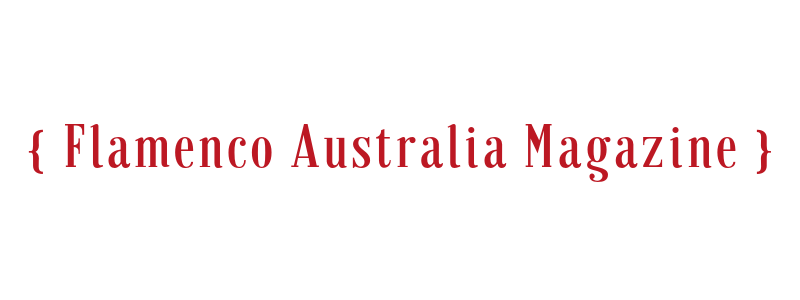Dilution and Duende - Part 3
An insight into a conservatorium students outlook on “flamenco puro”
Federico García Lorca
Continued from Part 2I love Flamenco and cant wait to go to Spain and study it on a deeper level. I feel that my approach to it from my broad background of musicianship would be less of a dilution than an addition to The beautiful art form of Flamenco Puro.“Duende” translated from Spanish means demon, spirit and to have soul. It relates to an altered state of consciousness noticed in flamenco dancers and musicians. It has a lot to do with emotion, expression, energetic instinct and authenticity of performance.Federico García Lorca first developed the concept of Duende in a lecture he gave in La Habana in 1930. I gathered some interesting and informative quotes from the essay outlining the concept of duende which I thought I should include.Firstly, he believed that "All the arts are capable of duende, but where it naturally creates most space, as in music, dance and spoken poetry, the living flesh is needed to interpret them, since they have forms that are born and die, perpetually, and raise their contours above the precise present."Secondly he noted, "The arrival of the duende presupposes a radical change to all the old kinds of form, brings totally unknown and fresh sensations, with the qualities of a newly created rose, miraculous, generating an almost religious enthusiasm."Thirdly and interestingly dark he quotes "Everything that has black sounds in it, has duende," and that “these black sounds are the mystery, the roots that probe through the mire that we all know of, and do not understand, but which furnishes us with whatever is sustaining in art.”Lastly and nevertheless significantly he exclaimed “The Duende never repeats himself, any more than the forms of the sea repeat themselves in a storm,” and that “it is a mysterious force that everyone feels and no philosopher has explained”.When I first came across this term I was practising with a flamenco dancer who’s mother was very traditional and knowledgeable of the art form. It struck me as fascinating as I have also experienced this ecstatic anomaly, although I knew it as a few different names such as “flow” and “the X factor”.This describes an ultimate expression of will and energy where it is virtually impossible not to capture the full attention of the performer and onlookers, and, is not always easy to find.[ad name="googleadt"]In my case duende is divided into two parts of musicality; improvising and performing classically. The improvisatory side usually occurs in the night time when I have been playing for a long time. My mind suddenly gets really creative in an improvisatory sense and I explore the many thousands of options always available to me, (but difficult to find, as the human mind works on systems it already knows the best - hence the term “stuck in a rut”).Usually in my experience of duende technical intimacy is evoked, giving me the ability to perfectly craft songs with precision and beauty. Interestingly I find this has to do mainly with a happy content mind frame, and positive attentive energy from an audience (if there is one).I think this is a brief encounter of universal knowledge and is an amazing experience that I forever search for and often encounter in great gigs, and is also what an experienced jazz musician actually practices to create.To conclude, as one can see the concepts of Dilution and Duende in Flamenco Puro are very interesting and relative to my life and musicality at the present.I hope that from reading this, one can attain more of a rounded and modern outlook on these aspects, as well as gain some in-depth knowledge about traditional Spanish music.BibliographyRienhard.G Pauly, “flamenco: gypsy dance and music from Andalusia” Amadeus press, c1990.Federico Garcia Lorca “The Duende: Theory and Divertissement” 1930 http://www.musicpsyche.org/Lorca-Duende.htm

